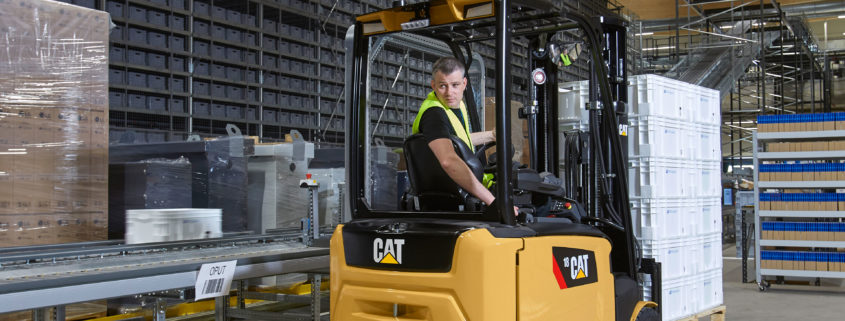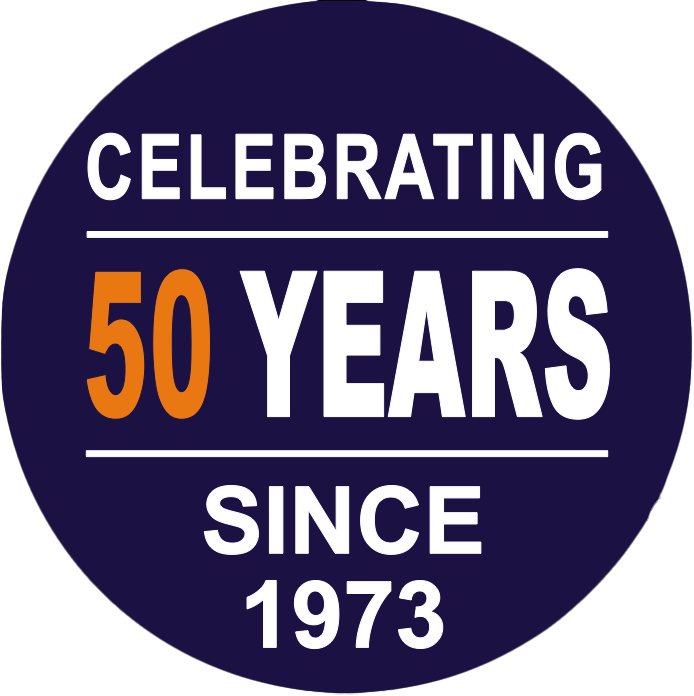A Focus on Ongoing Forklift Training
Although forklift training may seem like a considerable investment, it’s more than worthwhile when it comes to the benefits that your business will get, especially investing in ongoing forklift training. Having your staff go through forklift truck training ensures that you meet the set safety and health regulations, and you also get a more competent and skilled workforce. That means a reduced risk of accidental damage to equipment, stock, and your workplace and a safer and less costly future for your company.
What is forklift training?
Forklift training is a course that familiarises an operator about the way a forklift truck works. A new driver may have to go through general basics as forklifts operate differently compared to other machines.
The training also involves showing the novice how to operate the machine, which includes using the different functions like the horn, beacons, throttle, and the forks. Learning how to work a forklift is easy; the challenging part is knowing how to drive the truck safely.
An operator must know how heavy or light a load is when placed on the front forks. He/she should learn how to drive the forklift to avoid dropping the load. Failure to drive safely could lead to damaged goods and onsite injuries.
A forklift training course also covers retaining balance. Dangerous and fatal operator accidents occur when forklifts tip over. The operator needs to learn how to keep the load low to the ground and manage elevated loads to avoid tipping over. The course also covers the importance of not jumping off a forklift that has tipped. Staying buckled reduces the rate of injury.
Forklift training also entails knowing how to secure the load on the forks and understanding how loading and unloading work. Operators learn how to check the forklift to make sure it’s safe for use and the different driving principles like adjusting the driving style in adverse weather conditions. The type of training offered is more involved.
Why is ongoing forklift training essential?
Ongoing forklift training is vital as it helps:
Keep the driver happy at the job
One of the best things about regular forklift training is that it keeps the drivers happy in their jobs, which results in better performance. It shows the operators that you’re willing to invest in them a,s a business owner, and that makes them work harder as they see the effort you put in to keep them as part of your team.
Reduce accidents and damage
While working with skilled operators may help you cut down on training costs, you also need to invest in ongoing forklift training. That’s because qualified and accredited operators reduce the risk of damage to goods, equipment, and workplace accidents.
Having to deal with such incidents can cost your business huge sums of money, but this can be prevented with the right training. You can confidently raise profitability and productivity for your business by preventing these accidents and enhancing the efficiency of your operators.
Forklift truck training is essential when you need to have a professional and safe working environment. Ongoing training gives the operator the knowhow on proper risk awareness and assessment. It also equips him with safe driving tips.
Efficiency of operation
What’s more, the courses provided are designed for the equipment you use. The training also takes into consideration the environment you use the equipment in, something that ensures the operators’ train and qualify in the machines they will be using.
Ongoing training also guarantees the efficiency of the operation. The training allows operators to be competent in how they use the forklift and in the way they load and unload. Going through this training enables your business to grow.
Keeping up to date with the latest operating techniques
Another advantage of ongoing training is that it keeps your operators up to date with new techniques to operate forklifts and equips them with vital tips to benefit your business in the long run.
That can include knowing more effective ways of performing routine checks, learning improved methods of handling driving in unexpected weather conditions, and getting more methods of loading and unloading.
Over time, operators may find ways to cut corners to save time. However, this could be dangerous and can lead to loads being damages, accidents happening, and your business suffering ultimately. Ongoing forklift operator training continually refreshes the drivers on the right ways of operation, which they can stick to in the future.
Low insurance premiums
Your business can enjoy lower insurance premiums if you regularly train your drivers. Although this is dependent on your insurance carrier, the companies determine your premiums based on the level of perceived risk. Well-trained operators are considered as less of a threat, which lowers your premiums.
The benefits of onsite forklift truck training
Training your staff onsite gives you an advantage as the operates get to use the equipment and understand how the loads work daily without going to a different training centre. Moreover, you don’t have to spend extra money and waste time by sending your employees to training centres.
The best part is that the training company can work around your working hours to make training more convenient or to minimise staff downtime.
Forklift training courses
Some of the forklift training courses include:
Certification on the different types of forklift trucks
Operators need to undergo training and get certification for each type of forklift truck to run a forklift safely. Forklifts can be electric, diesel, or LPG based. Some common types of forklift trucks include:
-Counterbalance forklift
-Reach Forklift
-Telehandler Forklift
Counterbalance forklift
Counterbalance forklifts are standard in most environments, including storage depots and warehouses that have a reach of 20ft. The fork arms help to balance the forklifts, thanks to the counterweight.
The fork arms and load project from the machine’s front side. Loads can be lowered or raised vertically. Also, the mast can be tilted backwards or forwards up to 15 degrees. These forklifts have a variety of attachments.
Industrial counterbalance forklifts are of different types, but you’ll find the three-wheel models to provide excellent manoeuvrability, especially in narrow aisles.
Reach forklift
Reach forklifts have a mast that stabilises the whole machine. The mast looks like a vertical piece that holds the driver and cab on one side, with the lift and fork on the other side to balance out the loads and equipment.
The fork is perpendicular to the mast and goes through the front of the machine using a scissor mechanism. These forklifts are designed in a way that the operator stands while driving. You can drive the reach forklifts through aisles that are seven feet.
You’ll find these trucks in warehouses where space is limited. When travelling, the load is reached back and carried within the wheelbase to allow manoeuvrability. These forklifts can reach a height of forty feet.
Telescopic handler forklifts
Telescopic handler forklifts are popular in industries that require heavy lifting. You can also find them in agriculture. These forklifts have various features that make them convenient for use in different situations. Some people confuse the forklifts with small cranes.
Moreover, they have the advantage of a single telescopic boom, which allows the truck to be flexible and powerful. Find attachments like.a muck grabber, pallet fork, bucket, and a lift table on the telescopic handlers.
The attachments give the forklift fantastic lifting capabilities, something that allows the operator to complete work at higher heights that regular forklifts can’t reach. These forklifts are popular on construction and in agriculture.
Telescopic forklifts are fitted with a boom that is pivoted at the rear and raised/lowered by hydraulic rams. The boom extends or retracts to provide extra height or reach. The forklifts can be two or four-wheel drive.
Manual handling and kinetics course
Do your operators spend a lot of their time lifting heavy items and manually moving them? You need to ensure they get the right training to do their job efficiently and safely.
Manual handling involves movement or support of any load by carrying, lifting, pulling, pushing, and putting down. That can be done using trolleys or trucks.
The Manual Handling and Kinetics Course is designed for operators involved ib manual handling of any kind in the workplace. This course address the importance of good manual handling, looks at what manual handling is, explores the common injuries operators may suffer from in the workplace, explains the manual handling operation regulations, and teaches on excellent handling techniques.
The course intends to reduce the risks associated with manual handling operations and let the operators know the risks they can encounter in manual handling operations.
Novice instructor and refresher courses
Novice instructor is for operators who don’t have previous knowledge operating forklift tricks. The course goes over all the basics, which makes it lengthier than other levels of training. A typical novice training course takes four to five days, but this varies depending on the class.
Refresher courses target those who have already completed their training but are looking to update their skills or learn more about the changing industry regulations.
It’s recommended to undergo refresher training after every three years to be up to date with the new regulations in the industry.
Conclusion
A forklift training course is not only beneficial to the operators, but it also has numerous benefits for businesses. Companies can cut costs, save time, and enhance productivity in the workplace. Although ongoing forklift driver training isn’t mandatory, its benefits outweigh the initial cost of the investment your business will make. The best part is there are different courses in forklift training. You can opt to choose one that your operators need to ensure the efficiency of operation and maintain safety standards.
Get in touch today to discuss your ongoing forklift training and how we can help.



